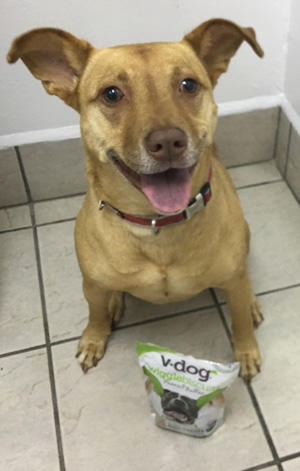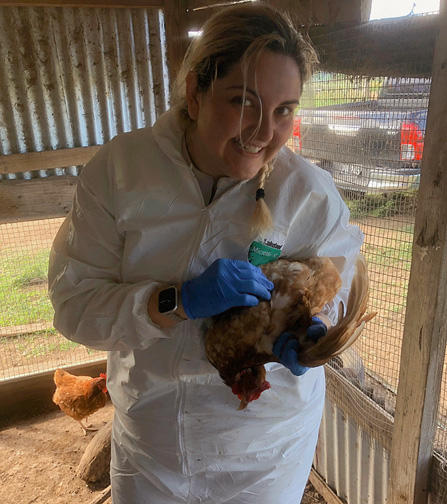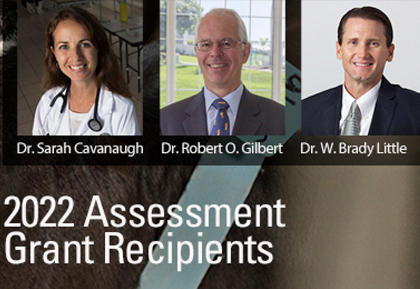On October 12, 2021, Ross University School of Veterinary Medicine (Ross Vet) Assistant Professor and Cardiologist, Dr. Sarah Cavanaugh, received the honor of having her manuscript published by the Public Library of Science (PLOS). The research article, titled Short-term amino acid, clinicopathologic, and echocardiographic findings in healthy dogs fed a commercial plant-based diet, was and the culmination of three years of research and analysis conducted by Dr. Cavanaugh and her team – Ross Vet colleagues Dr. Ryan Cavanaugh, Dr. Jennifer Ketzis, Dr. Aline Vieira, former student Dr. Elena Leavitt, now completing her residency in nutrition, and former Adtalem employee Dr. Gregory Gilbert.
According to the manuscript and verified by PLOS, this is the first study of its kind to evaluate the effects of a plant-based diet on several health parameters in client-owned dogs. “Dogs in the United States, like most people, consume a lot of animal products. Animal agriculture is beneficial from a food production standpoint, but we can’t ignore that it has some downfalls, like the negative impact on the environment. Also, some dogs cannot tolerate animal products in their diet. For these reasons, it’s important that we work to discover viable non-animal nutrient sources for dogs,” said Dr. Cavanaugh.
The study was funded by an intramural grant from Ross Vet. The objective was to feed healthy adult dogs a commercial extruded plant-based diet in which pea protein was the primary protein source and compare the post-diet test values to baseline values and to a control group of dogs being fed a traditional diet. Dr. Cavanaugh and team’s hypothesis was the plant-based and traditional diets would have similar effects on canine health. The full manuscript is available for further reading here.
According to Dr. Cavanaugh, “after learning how diet and nutrition were being used to prevent and treat certain cardiovascular and other chronic diseases in people, I started to ask myself if the same was possible in pets. Initially, we thought our first study would be investigating the effects of certain diets in dogs with heart disease or cancer. Then, we discovered that many pet foods are not evaluated in healthy animals prior to being sold commercially. Pet food formulation is a science, and there are lots of places in the formulation and processing steps where things can go wrong. We can improve food safety for pets and other animals by doing in vivo assessments of the diets before they go to market. Because of this first study, we have been able to complete two other studies investigating the effects of certain diets on cardiac and cancer biomarkers. This is just the tip of the iceberg.”
Of course, none of this study would be possible without the study subjects – the dogs! All 38 of the dogs came from the Ross Vet community, many of which were the pets of students and colleagues who volunteered for the study. Aside from visits to campus for analysis, all the dogs maintained their normal life at home with their families. “I think a lot of the public may believe that animals used in research live in laboratory settings and, traditionally, that is how a lot of pet food trials are conducted. Our study shows that an alternative is possible, and it expands the scientific, peer-reviewed diet information available to veterinarians and pet parents, and I’m really proud of that.”
The study was funded by Ross Vet intramural grant 42001-2019.







